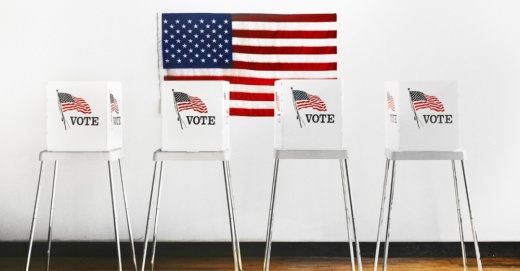The early period runs Oct. 18-23 and 25-29 in Travis County, and voters may cast their ballots at any of the 27 polling locations open throughout the county.
Early voting hours will be 7 a.m.-7 p.m. Monday-Saturday and noon-6 p.m. Sundays.
In Austin, residents will vote on eight statewide propositions and two city propositions: Proposition A, which address police staffing, and Proposition B, which concerns parkland.
Sample ballots can be found here.
What to know before you go
For voters who have already experienced casting their ballot during the pandemic, this election will not be much different, Travis County Clerk Dana Debeauvoir said.
Debeauvoir said her office thought there was a chance this election would look more like normal, but “when delta hit us, it sent us back to square one.”
Voters will be required to social distance. Poll workers will be provided with protective gear and will clean polling stations regularly.
One change voters will notice is people voting by mail will have one day—Election Day—to return their completed mail-in ballots in-person, instead of the 16 allowed last year.
Debeauvoir said those additional days were allowed early in the pandemic under a disaster declaration filed by Gov. Greg Abbott. That declaration has since expired.
To return a ballot, it must already be filled out—this is the difference between allowing ballot drop off and drive-thru voting, which is not allowed under new election laws and is not offered in Travis County.
Debeauvoir encourages anyone who is late mailing their mail-in ballot, or concerned about mailing it, to hang on to it until Election Day, then bring it to the clerk’s office at 5501 Airport Blvd., Austin.
“If you have any doubts or if you wait too late, that is your opportunity to correct your dallying,” Debeauvoir said. “I don’t blame [late voters] one bit; we would be happy to accept hand delivery of an already voted ballot.”
Prepare to vote: tips from Debeauvoir
- Check your registration and ensure all data is accurate.
- Locate your approved ID.
- Check your sample ballot and research ahead of time.
Acceptable forms of ID
- Texas driver’s license*
- U.S. citizenship certificate with photo
- U.S. passport
- Texas concealed handgun license
- U.S. military ID card with photo
- Texas personal ID card
- Texas Election Identification Certificate*
Voters who cannot obtain an acceptable form of photo ID due to a reasonable impediment may present a supporting form of identification and execute a Reasonable Impediment Declaration.





